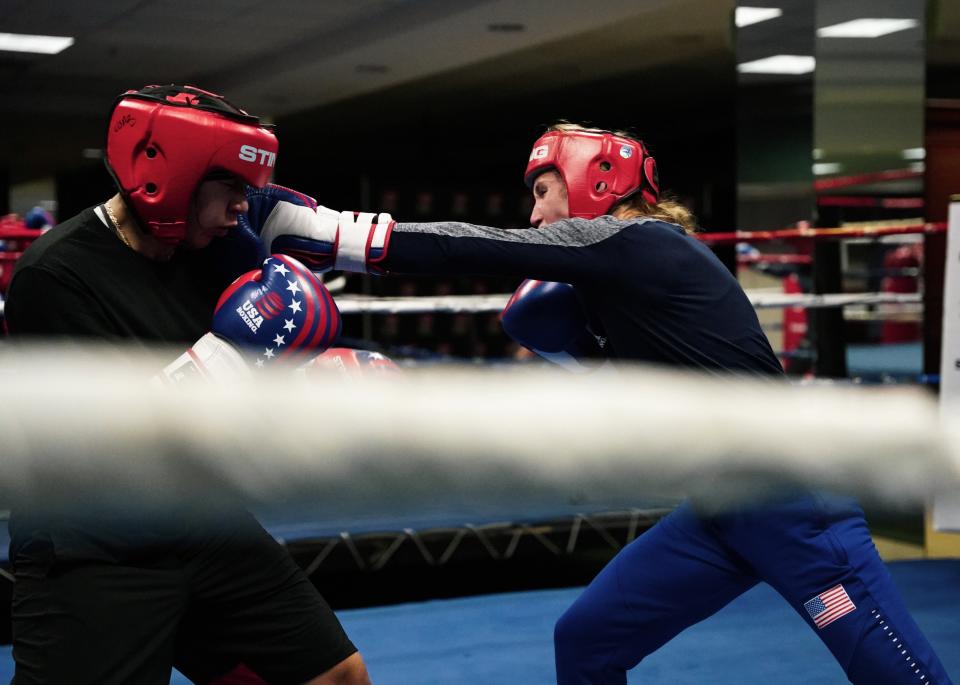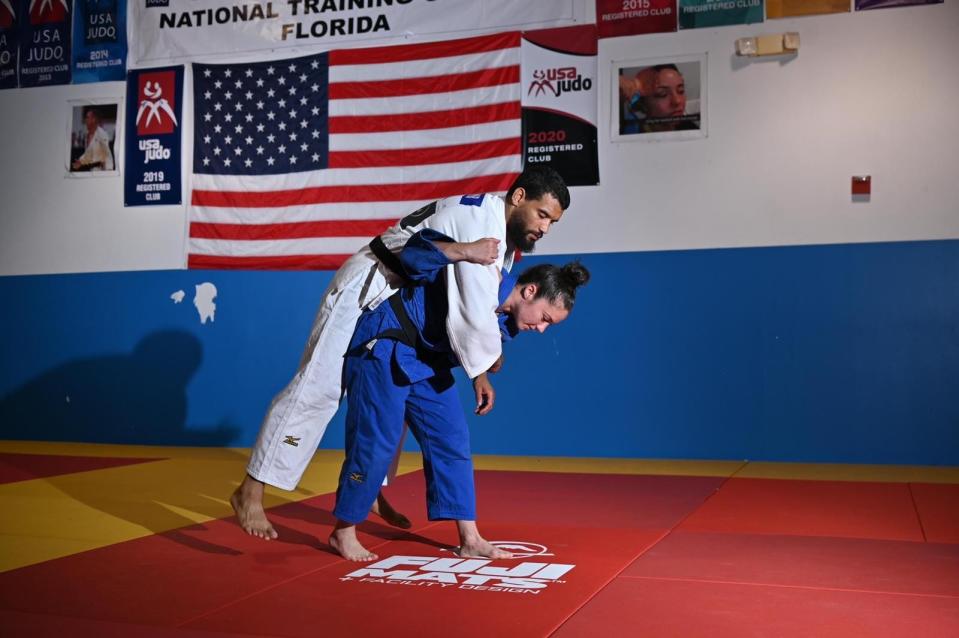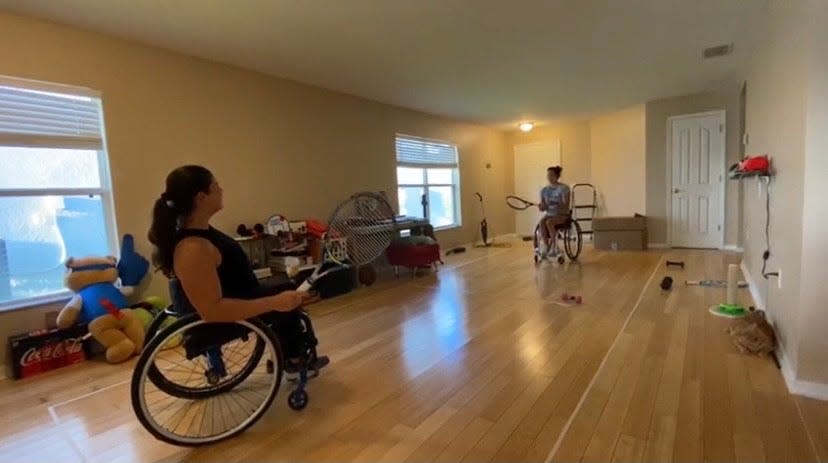No reason to flip out: US athletes reveal crazy ways they’ve trained for Olympics during COVID-19
They are some of the top athletes in the world in their respective sports – elite in their training, meticulous in the preparation, the best the United States has to offer.
But when training facilities shut down due to COVID-19, they had to get creative.
There were boxers smashing rocks with a sledgehammer on the side of a mountain. An Olympic diver doing flips on his children's trampoline in the backyard. Wrestlers and judokas sparring with their fiancés or siblings.
"It was Rocky Balboa style, trying to find different ways," wheelchair rugby athlete Joe Delagrave recalled. "I was lifting my kids, bench-pressing my wife sometimes."
With the start of the Tokyo Games now just 100 days away, U.S. athletes have largely been able to settle back into their normal training routines. Gyms and pools are open again, as is the U.S. Olympic & Paralympic Training Center in Colorado Springs, Colorado. Many have even returned to national or international competition.
But almost all of them have a crazy "training during COVID-19" story from this time last year. And several U.S. athletes believe their unique training regimens actually helped prepare them for the upcoming Games, in one way or another.
"We’re going to be ready for just about anything," diver David Boudia said in a news conference last week. "Because we’ve trained, just in this past year, through weird ways."
Boudia, a three-time Olympian and four-time medalist, is among the dozens of athletes who had to figure out a way to train without access to a pool. He said he borrowed some padded mats and set them up in his backyard, then usurped his children's trampoline to replicate the bounce of a springboard.
"Never in a million years did I think I would be doing training in my backyard. On grass," he said.
Many swimmers, meanwhile, turned to open water. Two-time Olympic gold medalist Lilly King donned a wetsuit and swam with turtles at Howard Lake in southern Indiana. Paralympian Evan Austin retreated to his friend's lakehouse, where he'd swim in the lake while his friend joined in a paddleboat to "make sure I wasn’t going to be run over."
Anita Alvarez, a member of the U.S. synchronized swimming team, said her team's initial plan was to rent a house on Airbnb that had a backyard pool. They ended up deciding to train on land, over Zoom, instead.
"And then I had actually ordered a baby pool from Amazon," Alvarez said. "(Though) that was kind of just for fun."

The early days of social-distancing proved to be particularly problematic for athletes in combat sports, who rely on hand-to-hand training sessions to hone their craft. Many had little choice but to enlist their family members as sparring partners.
Wrestler Kyle Dake said he spent several months wrestling in his garage, with his brother Corey serving as his primary training partner. Adeline Gray wrestled one of her sisters in her living room, or on a patch of grass outside. Judoka Angelica Delgado said she "was throwing my fiancé around" in their one-bedroom apartment. (Her fiancé, Alex Turner, also competes in judo but weighs about 50 pounds more than Delgado.)

Para-judo athlete Ben Goodrich had an arguably trickier training situation. When the pandemic hit, he went home to Minnesota, where the person he was throwing around in training wasn't a significant other, but his father.
"It’s a hard line," Goodrich joked, "trying to be aggressive and nice to your parents at the same time."
The stories go on and on like this, spanning locations and sports. Weightlifter Mattie Rogers cutting up slabs of carpet to help level out the makeshift lifting area in her garage. Para-tennis athlete Dana Mathewson and her roommates pushing all of the furniture in their living room against the wall, stringing up a net and constructing a miniature tennis court. Allyson Felix, a six-time Olympic gold medalist and one of the most decorated athletes of her era, running sprints on the beach or in her neighborhood.
"Some of my neighbors come out, kind of wondering what’s going on," she said with a smile. "... That was probably the most bizarre thing."
Ginny Fuchs, an Olympic hopeful in boxing, said that in the early days of the pandemic, she and fellow boxer Mikaela Mayer would meet a coach on the side of a mountain. One of them would do mitt training with him, while the other smashed rocks with a sledgehammer.

More recently, Fuchs and other U.S. boxers have been training at an abandoned Macy's in Colorado Springs, that USA Boxing has converted into a gym.
"You know, during this pandemic, you have to figure it out," Fuchs said. "You have to make things work."
Contributing: David Woods
Contact Tom Schad at tschad@usatoday.com or on Twitter @Tom_Schad.
This article originally appeared on USA TODAY: Summer Olympics 2021: US Tokyo athletes reveal odd COVID-19 training

